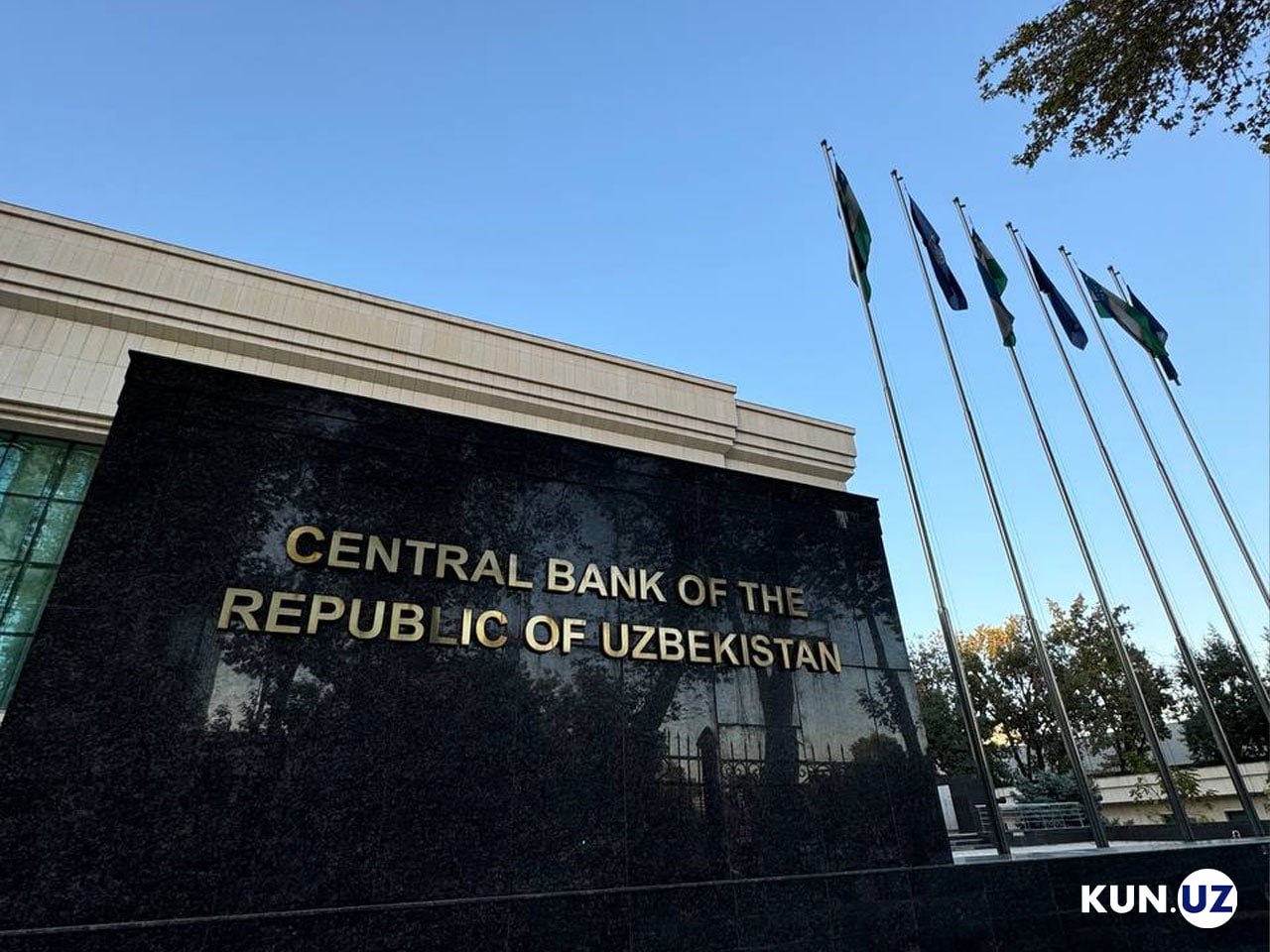Central Bank keeps key interest rate unchanged at 14 percent
The Central Bank of Uzbekistan has decided to keep the key interest rate unchanged at 14 percent per annum. The decision is aimed at mitigating the secondary effects of rising energy prices and ensuring a stable downward trend in overall inflation.

Photo: KUN.UZ
At its meeting on June 12, the Board of the Central Bank resolved to maintain the key rate at the current level of 14 percent per annum.
“Recent trends in economic activity and consumer demand, along with the upward movement in core inflation, indicate that inflationary pressures in the economy persist. As a result, despite a slight decline in headline inflation in May, it remains above the projected trajectory. In these conditions, the key rate was kept unchanged to reduce the secondary effects of energy price increases on inflation and to ensure that overall inflation shifts into a stable downward trend,” the Bank stated.
According to the Central Bank, headline inflation – which had been on an upward trajectory since the beginning of the year – declined in May due to the dissipation of the initial impact of last year’s energy tariff hikes, reaching 8.7 percent year-on-year. However, inflation expectations among households and businesses remain higher than actual inflation.
Driven by rising service prices, core inflation continued its upward trend, reaching 8.5 percent year-on-year in May. In a context of strong aggregate demand, the secondary effects of the current energy price increases may contribute to prolonged inflationary pressures.
Between January and May 2025, high levels of economic activity were a key factor in shaping aggregate demand. This was reflected in increased revenues from trade and paid services, higher volumes of cross-border remittances, a rise in interbank transactions, and a greater number of real estate transactions.
Additionally, the continued rapid pace of credit issuance and increased government spending have contributed to stimulating economic activity. These factors are likely to continue supporting aggregate demand, potentially intensifying price pressures in the economy.
Due to global economic uncertainty and heightened tensions in international trade, tight monetary conditions are expected to persist in many countries. At the same time, recent global increases in food prices could place additional pressure on domestic prices in the future.
High prices for traditional export commodities and strengthened exchange rates in partner countries are supporting growth in export revenues and cross-border remittances. This, in turn, contributes to a stable supply in the domestic foreign exchange market, along with rising foreign investment inflows—ultimately helping reduce exchange rate-related inflationary pressures in the coming months.
Maintaining the current tight monetary conditions will support a moderation in credit growth and continued high growth in deposits. This will help balance aggregate demand and reduce the impact of monetary factors on inflation.
Taking all of the above into account, the Central Bank's Board decided to keep the key interest rate unchanged at 14 percent to maintain price stability in the medium term.
The Central Bank affirms that a sufficiently tight monetary policy will be maintained to achieve the medium-term inflation target of 5 percent.
Should the upward pressure on prices from aggregate demand and secondary effects intensify more than expected in the coming months, the Central Bank may reassess the degree of monetary tightening.
The next meeting of the Central Bank Board to review the key interest rate is scheduled for July 24.
Related News

20:05 / 07.08.2025
Uzbekistan’s gold reserves hit record high as foreign currency holdings shrink

12:47 / 07.08.2025
Uzbekistan becomes June’s largest gold buyer in the world with 9-ton purchase

17:53 / 06.08.2025
Kyrgyzstan sees fastest acceleration in GDP growth across Central Asia

20:03 / 05.08.2025



